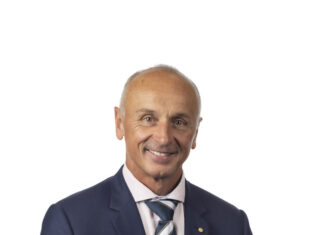 Girl power: Jill Jeffrey has followed a long family path through the Girl Guides movement. Picture: Tommy Ritchie 53017
Girl power: Jill Jeffrey has followed a long family path through the Girl Guides movement. Picture: Tommy Ritchie 53017
Andrew Mathieson
CONFESSING an involvement only by “sheer luck”, Jill Jeffrey’s knowledge of Girl Guides appears anything but accidental.
After nearly three decades adjusting the woggle on her guide neckerchief, Jill still studies the organisation’s history and assiduously recites the time when thousands of girls gatecrashed the Scouts’ inaugural rally one famous Crystal Palace day in 1907.
Her voice rises as she tells of Lord Baden Powell – the founder of scouting – returning to the UK from the Second Boer War in South Africa to pass on wilderness tips to young boys only to ask his sister Agnes to sort out the girls.
“She had about 11 hobbies,” Jill points out, “not only things like the piano but she did metalwork.”
To look back to history, Jill only has to look no further than her family’s.
Mum and two aunties were guides as kids and nanna was a district captain.
But Jill waited until she was 42 before stepping a foot inside a Guides unit.
“It was just sheer luck – it was nothing I had planned,” she says.
“I only came in because my daughter needed a leader. I’d never been a Girl Guide.”
Never previously had Jill tied down ropes on a tent or zipped up a sleeping bag.
Her first camping experience was like living her childhood in middle age, she laughs.
The 66-year-old jokingly shares the secret behind her youthful looks: “Well, that’s guiding – it keeps you young.”
Girl Guides also taught Jill many unexpected things, such as leadership and goal-setting.
“This is what guiding is all about to me – it’s not about tying a knot, she lamented.
“This is the misconception I have been beating my head about for nearly 30 years.”
An Order of Australia Medal in 2007 recognised Jill’s service to youth through the Guiding movement in Victoria. She has been a leader in six units at Beaufort, Beechworth, Seymour, White Hills, Morwell and Highton as she moved from one home to another with her husband’s bank job.
Jill rose right up to assistant state commissioner after sitting on the state executive committee, state council, state membership committee and as a state trainer.
“I had nine positions at once,” she remarks.
“When I was overseas away for five weeks I had to get people to fill in my positions when I was away.
“I thought ‘If I fall off my twig right now what the heck is going to happen’.”
Jill starts to calculate the number of guides that have passed her eyes. Counting in her head, she whispers units of 30 girls over several towns then adds hundreds from camps and, after nearly 30 years, comes up with a figure somewhere in the thousands.
“And some of them I still see today,” she notes.
They will greet her with “Hello Arana”, not Jill or Mrs Jeffrey.
Arana was an Aboriginal name given to her by Girl Guides in a now-defunct practice.
Jill’s now focusing on organising a Barwon region reunion to celebrate Girl Guides.
She has a personnel book listing every Guide since 1927.
“The oldest girl guide is 99 in February,” Jill smiles, “and we have two other 90-years-olds, so we’re hoping they can share some stories.”








